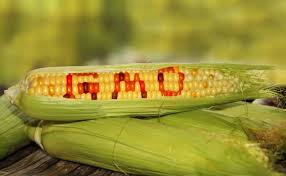To reduce potential risks and promote transparency in the introduction of genetically modified (GM) crops, the Federal Ministry of Health and Social Welfare has announced plans to enforce standard regulatory measures—such as labeling and traceability—for all GM products, aiming to build public trust and ensure accountability.
Mr. John Atanda, Director of the Food and Drug Service, revealed this during a GMO awareness workshop for Directorate Officers in Abuja, organized by the Open Forum for Agricultural Biotechnology (OFAB).
He added that the directorate will collaborate with other relevant agencies, including the National Agency for Food and Drug Administration and Control (NAFDAC) and the National Biotechnology Management Agency (NBMA), to guarantee proper labeling of GMOs.
While reiterating commitment to protecting and promoting public health through safe, nutritional and wholesome foods, Atanda pledged that every product born from modern biotechnology will be held to the highest safety standards, as rigorous risk assessments – covering allergenicity, nutritional composition, long-term health impacts, and environmental considerations – will guide their approach.
The Nigeria Country Director, Open Forum for Biotechnology Dr Rose Gidado, in her presentation on the Science of Agricultural Biotechnology, emphasised that GMO has a history of safe use of over three decades in about 45 countries.
She said: “The government cannot give poison to its people. If the story is that when you plant GMOs, it will destroy all the crops around it, then Nigeria should have died of hunger.”
Gidado explained that GM crops were developed from evidence-based research, saying, if Nigeria does not invest in research and development, it might keep depending on importation.
The Director-General of the National Biotechnology Development and Research Agency (NABDA), Prof. Abdullahi Mustapha, revealed that farmers recorded a 50 per cent yield increase after planting GM maize, also known as TELLA Maize.
He added that field studies and economic evaluations on cowpeas have also indicate striking returns to farmers cultivating Pod borer resistant cowpea, as there has been a dramatic reduction in insecticide sprays, thereby increasing substantial yield and strong returns on investment.



